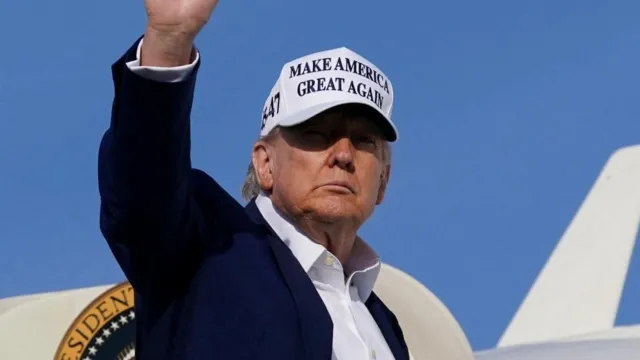US President Donald Trump has granted Hungary a one-year exemption from sanctions targeting Russian oil and gas, a White House official confirmed to BBC News. The move comes amid rising tensions over Europe’s energy dependence on Moscow during the ongoing war in Ukraine.
During Hungarian Prime Minister Viktor Orban’s visit to the White House, Trump acknowledged the challenges Hungary faces as a landlocked country, saying it is “very difficult for him to get the oil and gas from other areas.” Orban, a close ally of Trump, has maintained strong ties with Russia, arguing that pipelines are a “physical reality” rather than a political choice.
Hungarian Foreign Minister Péter Szijjártó initially claimed that Budapest had received “a full and unlimited exemption,” but officials later clarified that the exemption is limited to one year. As part of the agreement, Hungary has also committed to purchasing several hundred million dollars’ worth of US natural gas.
Trump’s decision represents a significant political win for Orban, who has warned that sanctions would severely impact Hungary’s economy. The exemption is likely to raise eyebrows across Europe, where many governments have criticized Hungary’s pro-Russian stance.
During the meeting, the leaders also discussed the war in Ukraine. Trump suggested that Orban “understands Putin very well” and hinted that both leaders believe the conflict could end sooner rather than later. Orban claimed that only Hungary and the US are genuinely seeking peace, asserting that other governments favor prolonging the war.
The meeting highlighted Orban’s ongoing strategy of leveraging Hungary’s energy dependence on Russia to maintain domestic support and influence international negotiations. Beyond energy, Trump praised Orban’s immigration policies, urging European leaders to “respect this leader very, very strongly.”
With Hungary facing upcoming elections in the spring, this exemption from sanctions and continued energy ties with Russia solidify Orban’s position domestically while testing Europe’s diplomatic cohesion.

